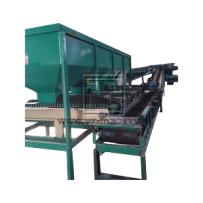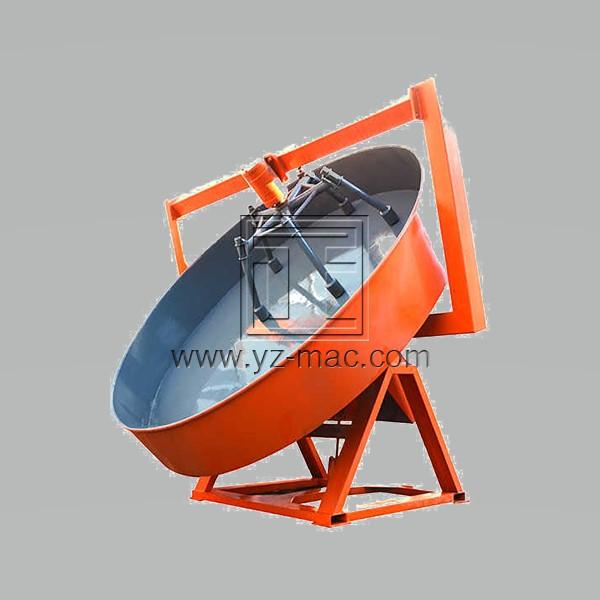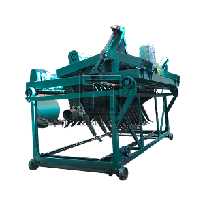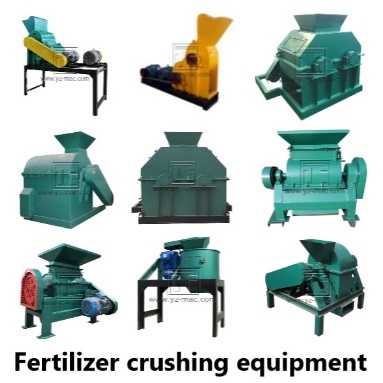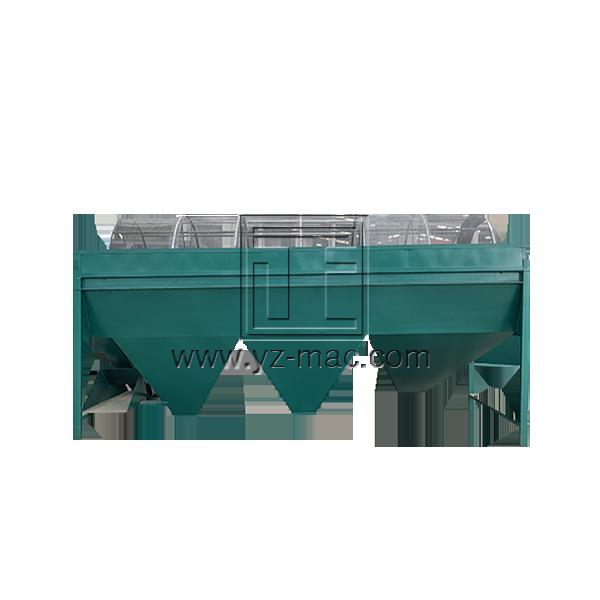Powdery Organic Fertilizer Production Line
A powdery organic fertilizer production line is a comprehensive system designed to manufacture high-quality organic fertilizers in powdered form. This production line combines various processes to convert organic materials into a fine powder that is rich in nutrients and beneficial for plant growth.
Importance of Powdery Organic Fertilizers:
Powdery organic fertilizers offer several advantages for plant nutrition and soil health:
Nutrient Availability: The fine powder form of organic fertilizers allows for efficient nutrient release and absorption by plants. The small particle size enables faster decomposition and nutrient solubility, ensuring that plants can access the essential nutrients more readily.
Balanced Nutrient Composition: Powdery organic fertilizers can be tailored to specific crop and soil requirements, providing a balanced blend of essential macro and micronutrients. This allows for precise nutrient management, promoting healthy plant growth, increased yields, and improved crop quality.
Soil Organic Matter Enhancement: Organic fertilizers contribute to the improvement of soil organic matter content, promoting soil structure, moisture retention, and microbial activity. They enhance soil fertility and long-term sustainability by improving nutrient holding capacity and reducing nutrient leaching.
Components of a Powdery Organic Fertilizer Production Line:
Raw Material Preprocessing: Organic materials, such as animal manure, crop residues, food waste, and green waste, undergo shredding, grinding, and drying processes to reduce their size, increase surface area, and remove excess moisture.
Mixing and Fermentation: The preprocessed organic materials are mixed together to achieve a balanced nutrient composition. This mixture is then transferred to a fermentation system, where beneficial microorganisms break down the organic matter and convert it into a more readily available form.
Crushing and Grinding: The fermented material undergoes crushing and grinding processes to further reduce particle size, ensuring a fine powder consistency. This step enhances nutrient release and absorption by plants.
Screening and Classification: The powdered material is sieved and classified to separate any larger particles or impurities. This ensures a uniform particle size and quality control of the final product.
Packaging and Storage: The powdery organic fertilizer is packaged into bags or containers for convenient handling, storage, and distribution. Proper packaging safeguards the quality and nutrient content of the fertilizer.
Applications of Powdery Organic Fertilizers:
Agriculture and Horticulture: Powdery organic fertilizers are widely used in agriculture and horticulture to provide essential nutrients to crops, vegetables, fruits, and ornamental plants. Their fast nutrient release and easy absorption make them suitable for various growth stages, promoting healthy plant development and improving crop yields.
Organic Farming: Powdery organic fertilizers are a vital component of organic farming practices. They contribute to soil fertility, nutrient recycling, and sustainable agricultural systems by providing organic matter and essential nutrients without relying on synthetic chemicals.
Soil Rehabilitation and Remediation: Powdery organic fertilizers can be used in soil rehabilitation and remediation projects to restore degraded soils or contaminated lands. Their organic matter content improves soil structure, moisture retention, and microbial activity, enhancing overall soil health and functionality.
Greenhouse and Hydroponic Cultivation: Powdery organic fertilizers are suitable for greenhouse and hydroponic cultivation systems. They can be easily incorporated into irrigation systems or used as nutrient supplements to provide balanced nutrition to plants grown in controlled environments.
A powdery organic fertilizer production line plays a crucial role in manufacturing high-quality organic fertilizers that enhance nutrient availability for plants. Powdery organic fertilizers offer numerous benefits, including efficient nutrient release, balanced nutrient composition, and improved soil health. By utilizing a comprehensive production line consisting of raw material preprocessing, mixing and fermentation, crushing and grinding, screening and classification, and packaging and storage, organic materials can be transformed into fine powder fertilizers suitable for various agricultural and horticultural applications. Incorporating powdery organic fertilizers into farming practices promotes sustainable agriculture, enhances crop productivity, and supports soil fertility and long-term ecosystem health.



